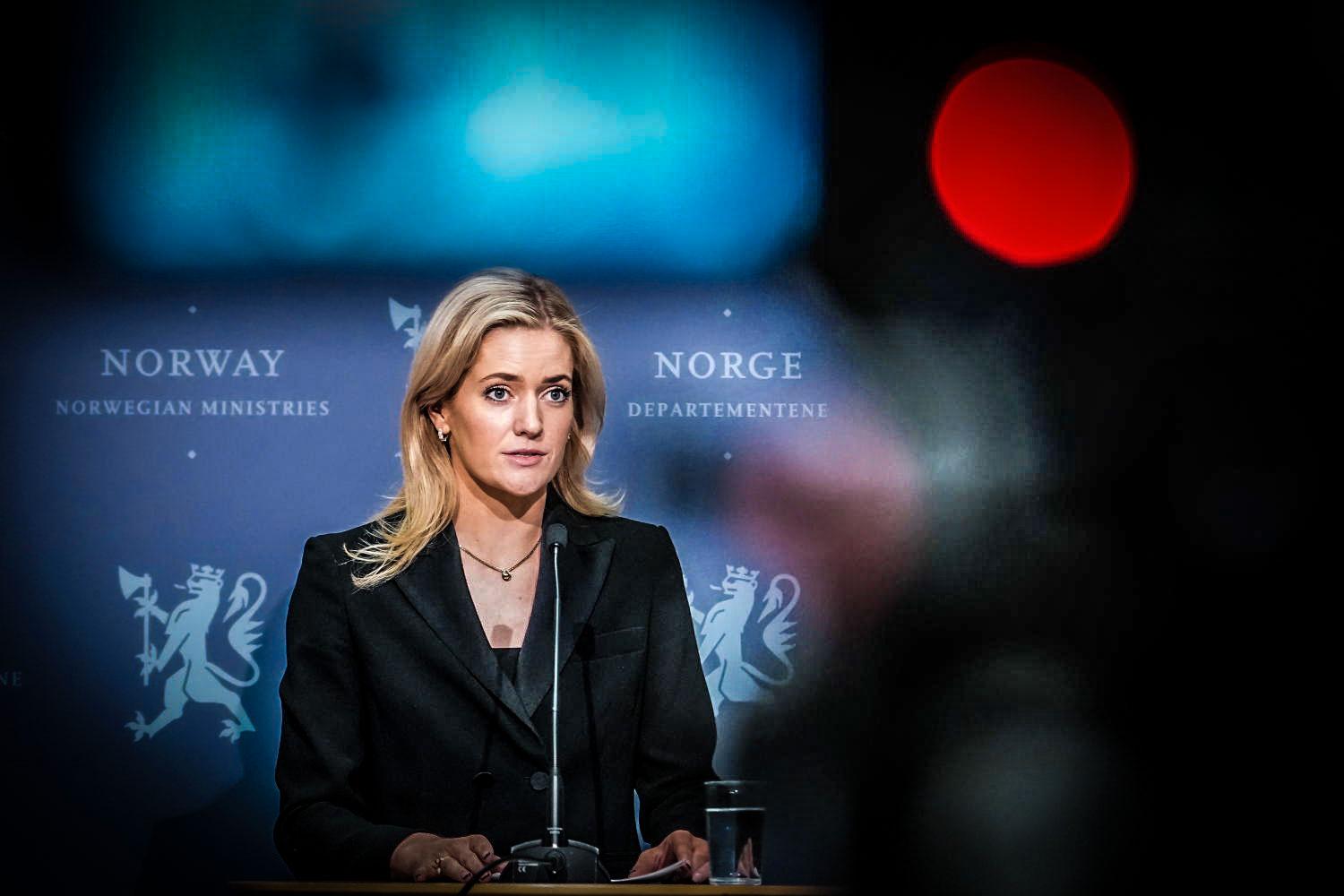Justice Minister Emilie Enger Mehl will not investigate what happened when whistleblower Øyvind Tenold was fired from his position as PST leader in Bergen. You will now be handling the case by the Storting’s Secret Service Monitoring Committee.
VG revealed as Øyvind Tenold he was fired from his executive position in the Western Police District in June last year, after briefing several of Norway’s most powerful police leaders: Police Director Benedicte Bjørnland, PST Chief Roger Berg and Police Chief Kaare Songstad.
When Tenold was returning to work in 2019 after a year off, he was told he had to be cleared twice to access classified Police Security Service documents: first by the Chief of Police. So from the head of the PST.
Tenold believes the statement was designed to get rid of him.
– I’m concerned that future PST whistleblowers may be exposed to exactly the same thing, he says.

Mehl will not answer
The EOS committee has now considered his complaint against the PST, the National Security Authority (NSM) and Western Police Precinct, confirmed in a letter to Tenold.
The Committee carries out an external and independent control of the Police security service. The aim is to ensure that people’s legal certainty and privacy are protected.
Tenold’s claim is that the PST, along with police chief Kaare Songstad, used the security act and authorization institution against him for a personal matter.
– For two years I asked PST to document the double authorization requirement, but they closed the door on me, says Tenold.
– No one replies to the media anymore either. Only the EOS committee can get to the bottom of what happened when I was presented with this job requirement that no one had ever heard of before, she says.
One of Norway’s leading security law experts, Carsten Rapp, previously told VG that the dual authorization requirement is contrary to the intentions of the security law.
Justice Minister Emilie Enger Mehl does not want to answer VG’s questions, but has previously said that the dual authorization requirement has been introduced and is legal – after having changed my mind several times.
Last November he asked for one PST supplementary declaration on when the requirement was introduced and its context. In PST’s response, it is stated that they cannot specify a concrete time for change in practice.
In an email to VG, State Secretary Hans-Petter Aasen writes that there is no need to request further information from the PST.
– The report states that the practice has developed over time, he says.

Unknown to the Chief of Police
As of fall 2020, Tenold had not heard of the complaint. He had already been cleared by an established police chief and was ready to step back into the leadership position when the requirement for PST clearance appeared.
«This is new to me», wrote police chief Hans Vik in the Sør-Vest police district in an email to Tenold.
Fearing that PST would make a negative clearance decision, Tenold declined to file. This led the National Security Authority to withdraw its security clearance. Without it, Tenold cannot work as the leader of the PST.
Now the EOS committee will investigate why Tenold has not received a response to requests for access to eight documents in his dismissal case.
At a meeting later this month, the EOS committee will also decide whether to launch an investigation into the permit requirement that PST presented to Tenold, they wrote in an email.
Director of the Silent Police
Under the EOS Control Act, the committee has the right to request access to all case documents and to summon key people and address them in “interrogation form”.
Police Director Benedicte Bjørnland headed the PST until spring 2019 and knows whether the dual authorization requirement has been introduced or not. He hasn’t wanted to answer VG’s questions about Tenold since September of last year.
VG asked the head of the EOS committee, Astri Aas-Hansen, if he will ask the director of police to explain himself to the EOS committee and ask PST to document the dual authorization requirement.
– We are unable to answer these specific questions due to the obligation of confidentiality to which the EOS committee is subject. In general, I can say that the EOS Control Act gives us a very broad right of access. This right also applies in appeals, writes Aas-Hansen in an e-mail.

– Furthermore, the law establishes that anyone who has worked in an EOS service has an obligation to explain to the committee everything they have experienced in the service.
Amazing explanations
The PST has previously told VG that both the police chief and the PST need to authorize PST employees in precincts, because the police and the PST are two different businesses. They also rejected the claim that the licensing file was changed in view of Tenold.
In the statement to Justice Minister Mehl, the PST writes that some local PST leaders had already obtained double authorization in 2017.
This contradicts a letter from former PST head Benedicte Bjørnland to the Ministry of Justice in 2018:
“The responsibility and authority for the clearance interview rests with the employer.” So this is the Chief of Police.

State Secretary Hans-Petter Aasen says in the email to VG that the dual authorization requirement was recently specified in a PST management document in October 2019.
This also contradicts statements by a former PST chief: Hans Sverre Sjøvold wrote to the police chief of Bergen in November 2019:
«The police chief in the West is the head of the company (…) As the PST sees it, any authorization from the head of the PST risks not being legally binding.»
